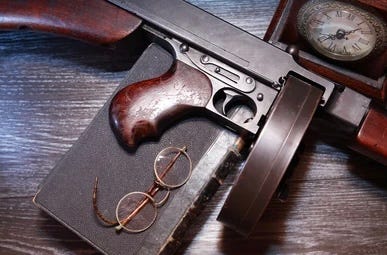CHANCES MEANT TO BE MISSED
Sometimes, getting ready for a defensive war is the only way to prevent the outbreak of an actual war
Welcome to the desert of the real!
If you desire the comfort of neat conclusions, you are lost in this space. Here, we indulge in the unsettling, the excessive, the paradoxes that define our existence.
So, if you have the means and value writing that both enriches and disturbs, please consider becoming a paid subscriber.
Four news items caught my attention lately: three made my blood boil, and one just made me sad. On July 3, 2025, Chinese Foreign Minister Wang Yi
“told the European Union’s top diplomat that Beijing can’t accept Russia losing its war against Ukraine, as this could allow the United States to turn its full attention to China, an official briefed on the talks said, contradicting Beijing’s public position of neutrality in the conflict. The official said Wang’s private remarks suggested Beijing might prefer a protracted war in Ukraine that keeps the United States from focusing on its rivalry with China. They echo concerns of critics of China’s policy that Beijing has geopolitically much more at stake in the Ukrainian conflict than its admitted position of neutrality.”1
We all knew this, but it was never said publicly. The ominous twist is that now China has said it publicly in a semi-official way. Illusions about China—the idea that, in spite of all its problematic features, it wants peace and global cooperation—are irrevocably shattered: China has now made it clear that it wants the long, devastating war destroying an entire country to continue because peace may hurt its economic interests. Such brutal reasoning, displayed in public, is something one would expect from Trump—so why did China do it? Why did it tell us publicly not to take seriously its desire for peaceful negotiation to end the war? The most benevolent interpretation is that, in the Chinese view, the continuation of the war is the price to be paid if we are to avoid a much more dangerous global confrontation between China and the US.
But there is another ominous aspect of the Chinese message: what exactly does “Russia losing its war against Ukraine” mean? Sometimes Putin asserts the right of Russia to occupy all of Ukraine, so “Russia losing” can simply mean that Ukraine survives, even if it loses a large part of its territory. And there is yet another ominous aspect: why does China say that Russia shouldn't lose the war if its interest is just that the war goes on? Why not say that Ukraine also shouldn't lose the war? Would China, in this case, also discreetly help Ukraine? If Russia wins, would this not compel Trump to focus even more on struggling with China (as the one who helped Russia to win)? One clear conclusion imposes itself from this ominous mess: the true reason why China supports Russia is not economic (fear of US economic pressure) but a more ideological-political one. In short, China is also not acting as a pragmatic agent following economic reasons; it is also pursuing political reasons which override economic ones, as is often the case with Trump, who now “threatens 50% tariffs on Brazil if it doesn’t stop the Bolsonaro ‘witch hunt’ trial.”2
One thing is clear in this mess: Europe has again missed its chance to help Ukraine and assert its autonomy. It should have accepted China’s offer to expand free trade exchanges on the condition that China begins to act the way it says it acts, as a truly neutral force showing understanding for Ukraine as well—a gesture that would, of course, enrage the US and thus assert European autonomy as a superpower of its own. As for Ukraine itself, top lawmakers are repeatedly demanding the fall of President Zelensky. Explosive accusations of dictatorship, betrayal, and Western manipulation are erupting even inside the Ukrainian Supreme Rada (parliament). Can one imagine something like this happening in Russia (without the accuser suffering an accident a day or two later, like falling from an upper-floor hotel room)? In spite of the terrible war destruction, Ukraine remains democratic in some basic sense.
But is Europe unified enough to be able to act in this way? Less and less—suffice it to recall the second news item which made my blood boil. On Saturday, July 5, the Catholic nationalist Croat singer Marko Perković Thompson organized a mega-concert at a hippodrome in Zagreb; around 500,000 tickets were sold in advance, making it the biggest concert where the public has to buy tickets in the history of humanity (or so the organizers claim). So who is Perković? Born in 1966, in 1991 he joined the Croatian forces fighting Serb aggression and used the American Thompson gun during his time in the war, which became his nickname and later his stage name. So yes, Perković is a man of culture—however, to paraphrase Joseph Goebbels, his motto is: “When I hear the word culture, I reach for my Thompson.”
Keep reading with a 7-day free trial
Subscribe to ŽIŽEK GOADS AND PRODS to keep reading this post and get 7 days of free access to the full post archives.


